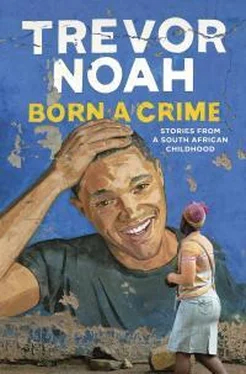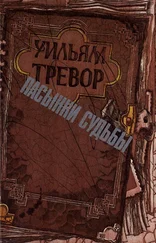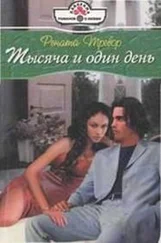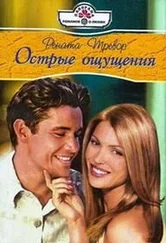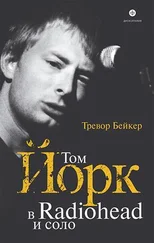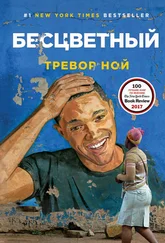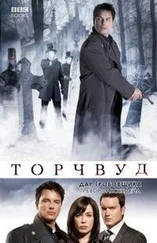I couldn’t walk with my mother, either; a light-skinned child with a black woman would raise too many questions. When I was a newborn, she could wrap me up and take me anywhere, but very quickly that was no longer an option. I was a giant baby, an enormous child. When I was one you’d have thought I was two. When I was two, you’d have thought I was four. There was no way to hide me.
My mom, same as she’d done with her flat and with her maid’s uniforms, found the cracks in the system. It was illegal to be mixed (to have a black parent and a white parent), but it was not illegal to be colored (to have two parents who were both colored). So my mom moved me around the world as a colored child. She found a crèche in a colored area where she could leave me while she was at work. There was a colored woman named Queen who lived in our block of flats. When we wanted to go out to the park, my mom would invite her to go with us. Queen would walk next to me and act like she was my mother, and my mother would walk a few steps behind, like she was the maid working for the colored woman. I’ve got dozens of pictures of me walking with this woman who looks like me but who isn’t my mother. And the black woman standing behind us who looks like she’s photobombing the picture, that’s my mom. When we didn’t have a colored woman to walk with us, my mom would risk walking me on her own. She would hold my hand or carry me, but if the police showed up she would have to drop me and pretend I wasn’t hers, like I was a bag of weed.
When I was born, my mother hadn’t seen her family in three years, but she wanted me to know them and wanted them to know me, so the prodigal daughter returned. We lived in town, but I would spend weeks at a time with my grandmother in Soweto, often during the holidays. I have so many memories from the place that in my mind it’s like we lived there, too.
Soweto was designed to be bombed—that’s how forward-thinking the architects of apartheid were. The township was a city unto itself, with a population of nearly one million. There were only two roads in and out. That was so the military could lock us in, quell any rebellion. And if the monkeys ever went crazy and tried to break out of their cage, the air force could fly over and bomb the shit out of everyone. Growing up, I never knew that my grandmother lived in the center of a bull’s-eye.
In the city, as difficult as it was to get around, we managed. Enough people were out and about, black, white, and colored, going to and from work, that we could get lost in the crowd. But only black people were permitted in Soweto. It was much harder to hide someone who looked like me, and the government was watching much more closely. In the white areas you rarely saw the police, and if you did it was Officer Friendly in his collared shirt and pressed pants. In Soweto the police were an occupying army. They didn’t wear collared shirts. They wore riot gear. They were militarized. They operated in teams known as flying squads, because they would swoop in out of nowhere, riding in armored personnel carriers—hippos, we called them—tanks with enormous tires and slotted holes in the side of the vehicle to fire their guns out of. You didn’t mess with a hippo. You saw one, you ran. That was a fact of life. The township was in a constant state of insurrection; someone was always marching or protesting somewhere and had to be suppressed. Playing in my grandmother’s house, I’d hear gunshots, screams, tear gas being fired into crowds.
My memories of the hippos and the flying squads come from when I was five or six, when apartheid was finally coming apart. I never saw the police before that, because we could never risk the police seeing me. Whenever we went to Soweto, my grandmother refused to let me outside. If she was watching me it was, “No, no, no. He doesn’t leave the house.” Behind the wall, in the yard, I could play, but not in the street. And that’s where the rest of the boys and girls were playing, in the street. My cousins, the neighborhood kids, they’d open the gate and head out and roam free and come back at dusk. I’d beg my grandmother to go outside.
“Please. Please, can I go play with my cousins?”
“No! They’re going to take you!”
For the longest time I thought she meant that the other kids were going to steal me, but she was talking about the police. Children could be taken. Children were taken. The wrong color kid in the wrong color area, and the government could come in, strip your parents of custody, haul you off to an orphanage. To police the townships, the government relied on its network of impipis, the anonymous snitches who’d inform on suspicious activity. There were also the blackjacks, black people who worked for the police. My grandmother’s neighbor was a blackjack. She had to make sure he wasn’t watching when she smuggled me in and out of the house.
My gran still tells the story of when I was three years old and, fed up with being a prisoner, I dug a hole under the gate in the driveway, wriggled through, and ran off. Everyone panicked. A search party went out and tracked me down. I had no idea how much danger I was putting everyone in. The family could have been deported, my gran could have been arrested, my mom might have gone to prison, and I probably would have been packed off to a home for colored kids.
So I was kept inside. Other than those few instances of walking in the park, the flashes of memory I have from when I was young are almost all indoors, me with my mom in her tiny flat, me by myself at my gran’s. I didn’t have any friends. I didn’t know any kids besides my cousins. I wasn’t a lonely kid—I was good at being alone. I’d read books, play with the toy that I had, make up imaginary worlds. I lived inside my head. I still live inside my head. To this day you can leave me alone for hours and I’m perfectly happy entertaining myself. I have to remember to be with people.
—
Obviously, I was not the only child born to black and white parents during apartheid. Traveling around the world today, I meet other mixed South Africans all the time. Our stories start off identically. We’re around the same age. Their parents met at some underground party in Hillbrow or Cape Town. They lived in an illegal flat. The difference is that in virtually every other case they left. The white parent smuggled them out through Lesotho or Botswana, and they grew up in exile, in England or Germany or Switzerland, because being a mixed family under apartheid was just that unbearable.
Once Mandela was elected we could finally live freely. Exiles started to return. I met my first one when I was around seventeen. He told me his story, and I was like, “Wait, what ? You mean we could have left ? That was an option ?” Imagine being thrown out of an airplane. You hit the ground and break all your bones, you go to the hospital and you heal and you move on and finally put the whole thing behind you—and then one day somebody tells you about parachutes. That’s how I felt. I couldn’t understand why we’d stayed. I went straight home and asked my mom.
“Why? Why didn’t we just leave? Why didn’t we go to Switzerland?”
“Because I am not Swiss,” she said, as stubborn as ever. “This is my country. Why should I leave?”
South Africa is a mix of the old and the new, the ancient and the modern, and South African Christianity is a perfect example of this. We adopted the religion of our colonizers, but most people held on to the old ancestral ways, too, just in case. In South Africa, faith in the Holy Trinity exists quite comfortably alongside belief in witchcraft, in casting spells and putting curses on one’s enemies.
I come from a country where people are more likely to visit sangomas —shamans, traditional healers, pejoratively known as witch doctors—than they are to visit doctors of Western medicine. I come from a country where people have been arrested and tried for witchcraft—in a court of law. I’m not talking about the 1700s. I’m talking about five years ago. I remember a man being on trial for striking another person with lightning. That happens a lot in the homelands. There are no tall buildings, few tall trees, nothing between you and the sky, so people get hit by lightning all the time. And when someone gets killed by lightning, everyone knows it’s because somebody used Mother Nature to take out a hit. So if you had a beef with the guy who got killed, someone will accuse you of murder and the police will come knocking.
Читать дальше
